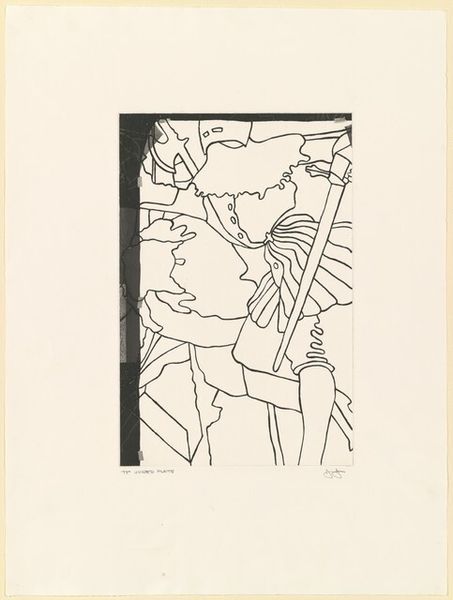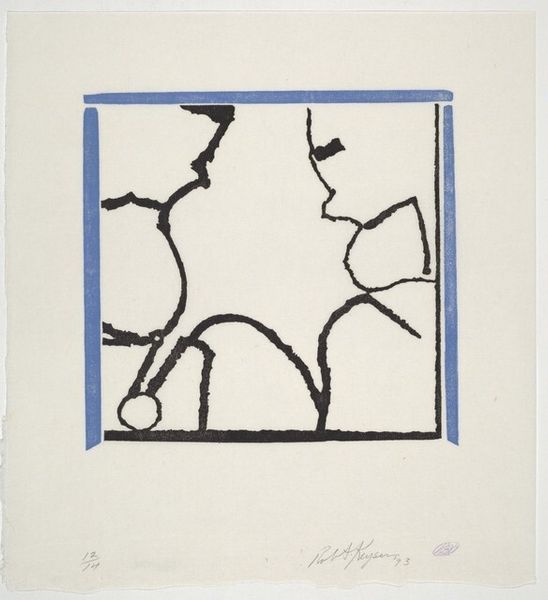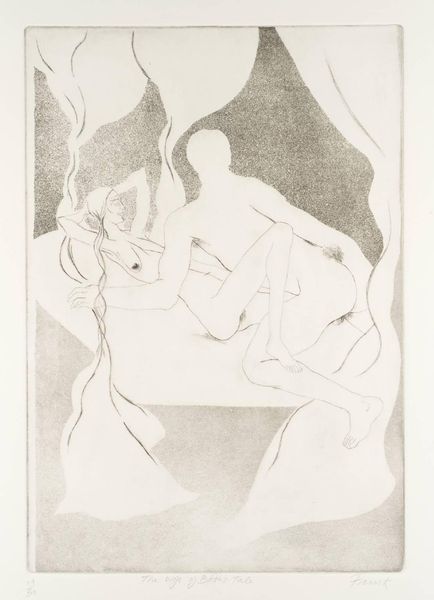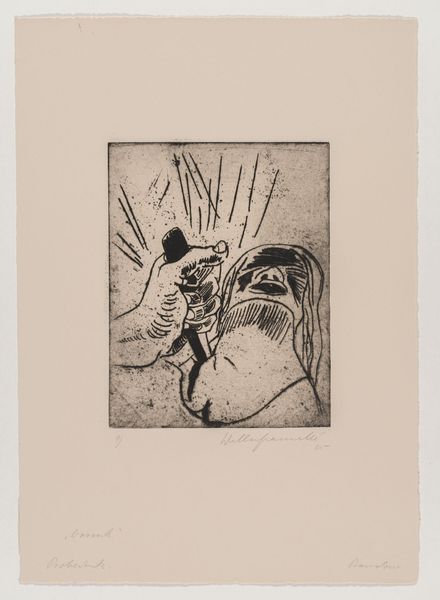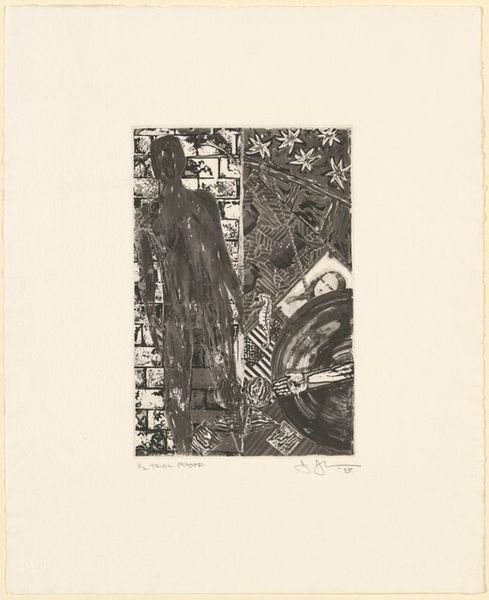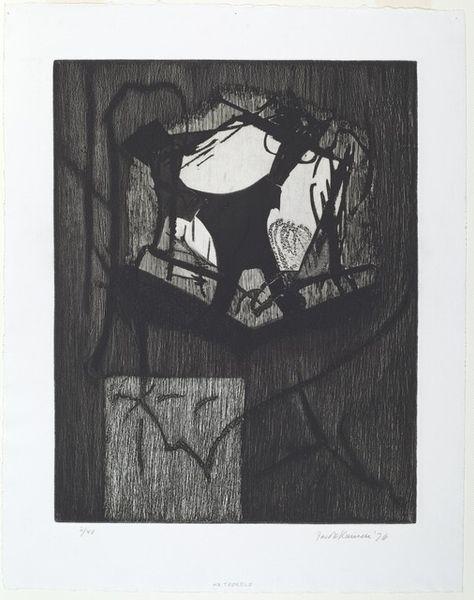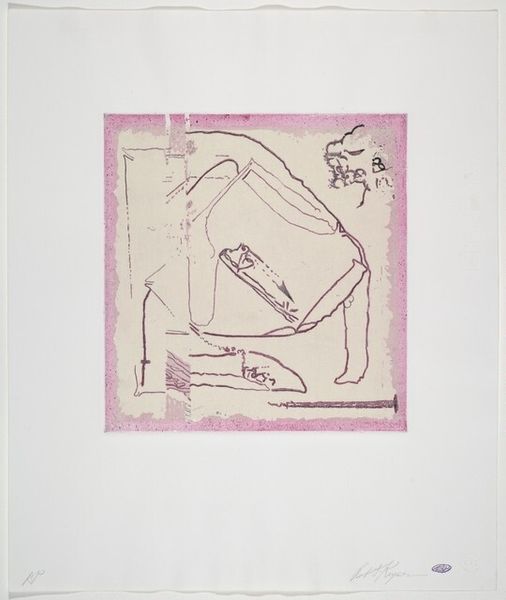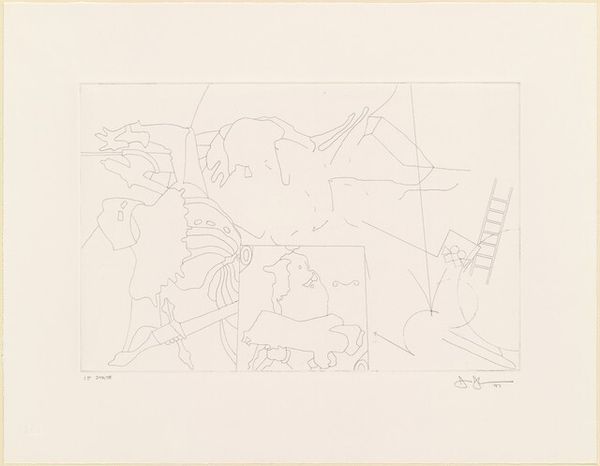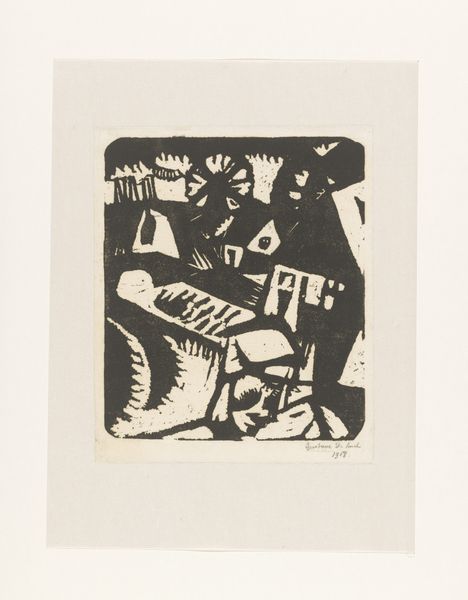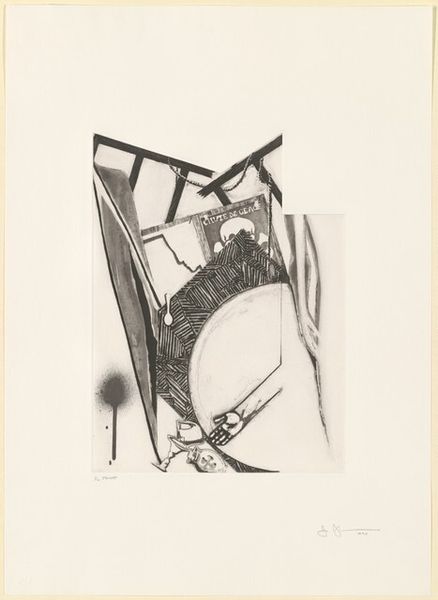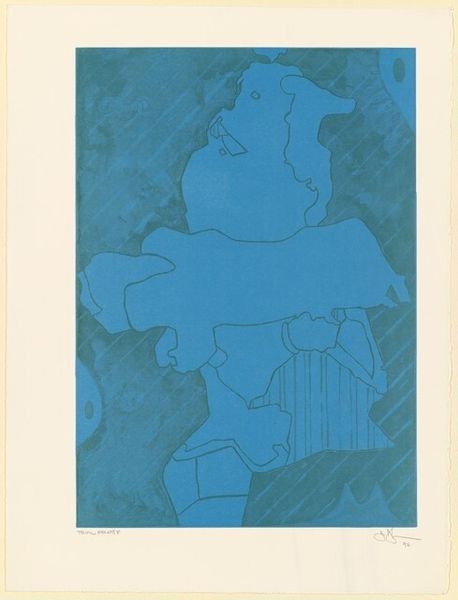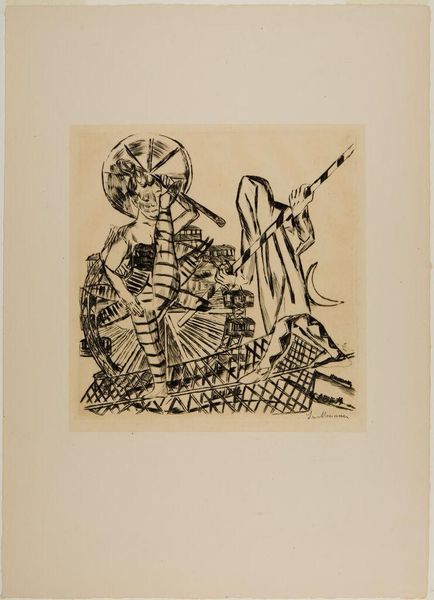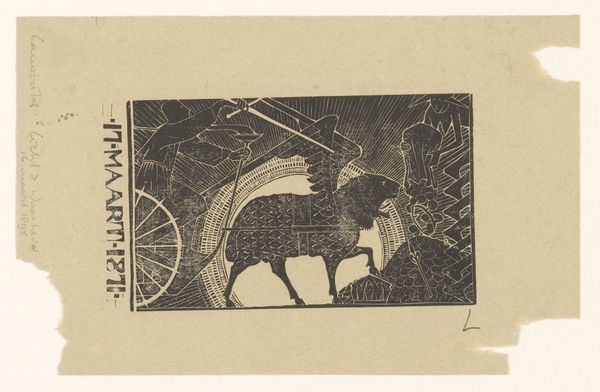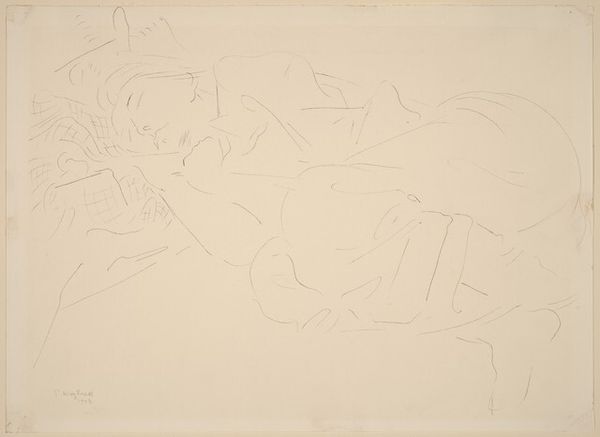![Untitled (Geldzahler) [trial proof] by Jasper Johns](/_next/image?url=https%3A%2F%2Fd2w8kbdekdi1gv.cloudfront.net%2FeyJidWNrZXQiOiAiYXJ0ZXJhLWltYWdlcy1idWNrZXQiLCAia2V5IjogImFydHdvcmtzL2Y0Y2M5NzZhLWJiZWEtNDNiNC1hYTg1LTNjNDllN2I1NDBmZi9mNGNjOTc2YS1iYmVhLTQzYjQtYWE4NS0zYzQ5ZTdiNTQwZmZfZnVsbC5qcGciLCAiZWRpdHMiOiB7InJlc2l6ZSI6IHsid2lkdGgiOiAxOTIwLCAiaGVpZ2h0IjogMTkyMCwgImZpdCI6ICJpbnNpZGUifX19&w=1080&q=75)
#
childish illustration
#
pastel soft colours
# print
#
joyful generate happy emotion
#
retro 'vintage design
#
pastel colours
#
feminine colour palette
#
neo-dada
#
bright pastel
#
soft and bright colour
#
watercolour illustration
#
cartoon theme
Dimensions: plate: 45.4 x 29.85 cm (17 7/8 x 11 3/4 in.) sheet: 75.57 x 56.52 cm (29 3/4 x 22 1/4 in.)
Copyright: National Gallery of Art: CC0 1.0
Curator: Here we have Jasper Johns' "Untitled (Geldzahler) [trial proof]", created in 1998. It’s a print that utilizes very restrained line work and coloration. Editor: My immediate reaction is to the tension between the starkness of the lines and the very playful cartoon-like subject matter, as well as those peculiar dark ink blots obscuring the faces. The blue tonality creates this very distinctive icy mood. Curator: The title suggests that the work references Henry Geldzahler, who was a prominent curator himself. We might see it as engaging with issues of artistic legacy, particularly in the context of late 20th century male power dynamics within artistic circles. How does Geldzahler’s prominent, establishment position intersect with Johns' artistic vision? The choice of a 'trial proof' also suggests some introspection on artistic decision-making. Editor: That reading definitely casts those blots of ink in a new light – they're almost violent, acting like erasures. From a material standpoint, it's interesting to see how Johns uses the print medium – traditionally one of reproduction – to produce what is effectively a unique and extremely limited composition given how it's marked. Does this act destabilize traditional hierarchy between production and reproduction, between original and copy, and in turn between artistic circles? Curator: Yes, precisely! The 'trial proof' format speaks to this. What considerations do you see emerging from the layering and interaction of social relations, such as gender and artistic role, embodied within Johns' practice and subject matter? Editor: The blurring between design and pure artistic creation in turn invites questions about the purpose of artmaking. The choice to render recognizable forms – swords, armor – alongside obfuscated portraits shows that the final materiality of artistic labor can never be a complete encapsulation. Curator: Ultimately, this work gives us so much to ponder about representation, power, and the social lives of artists themselves. Editor: Agreed. A glimpse into not just a historical relationship but the artistic and technical labor needed to produce it.
Comments
No comments
Be the first to comment and join the conversation on the ultimate creative platform.
